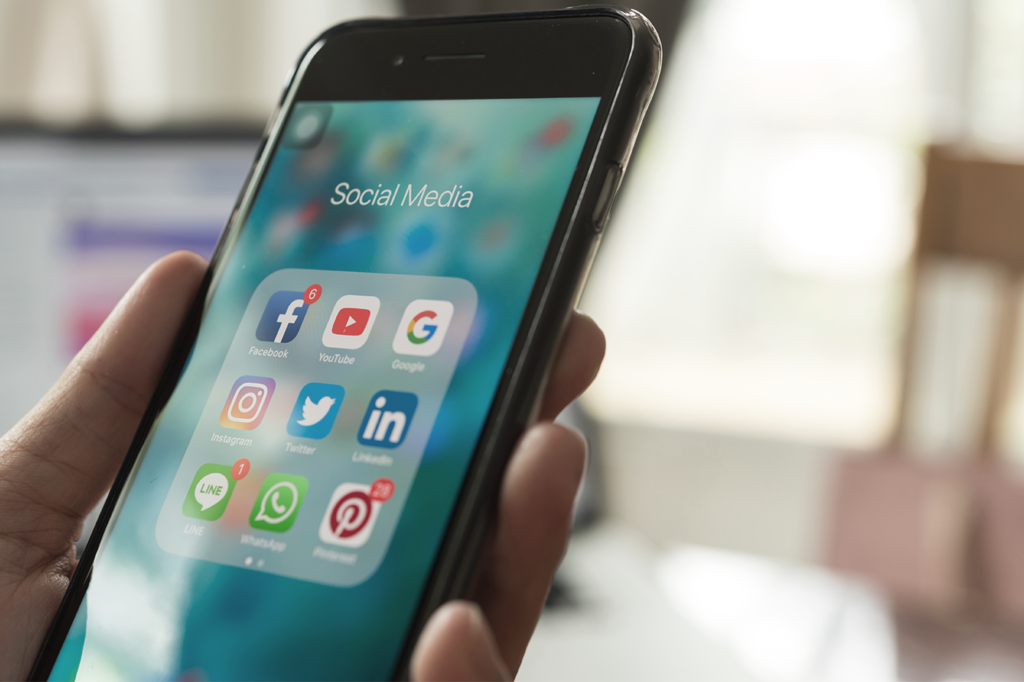There is a surprising amount of anxiety about money these days. The anxiety started with the mysterious Bitcoin; its promised anonymity rapidly made it the currency of choice for illicit activities, and its wild price fluctuations made it the asset of choice for risk-takers. Then came Facebook’s announcement that it would create a new currency, the Libra, which induced night terrors of Mark Zuckerberg’s knowing not only everything you put on his portal, but also how you spend. Finally, Google announced that it was going to get into the banking business. I started being regularly questioned about a terrifying new world in which Silicon Valley runs the entire monetary system and, therefore, the world.
The short version of my reply: Relax.
Why Money Matters
Every society has something that functions as money; in the modern world it is currency and funds in checking and savings accounts. Having a sound system of money is vitally important to having a well-functioning society. If you care about human flourishing but not economic theory, you still implicitly care about money. Why does money matter so much? If there is too much money in a society, then the result is inevitably inflation. Inflation disrupts the ability to plan for the future, randomly reallocates income (some people’s wages rise faster than others), and causes the most harm to the poorest members of society. If there is too little money in the society, a recession ensues. Firms find it harder to sell their products, resulting in lower production and employment.
Start your day with Public Discourse
Sign up and get our daily essays sent straight to your inbox.Given the importance of money in the society, who should provide it? The government or the private sector? In theory, not only could either work, but both could exist at the same time. Why then are we so conditioned to assume that the government has a natural monopoly on providing money? Imagine a country in which there were multiple types of money: US dollars, Facebook Libra, Google PayPalBucks, and Visa Bits. There is no reason the different types of money have to exchange at a 1:1 ratio. One dollar could equal 2 Libras, 0.5 PayPalBucks, or 500 Bits. Before paying or being paid, both parties would have to agree on which types of money are acceptable. When most people are presented with this world, they are not enamored. There is something nice and simple about having just one currency.
Having a single money does not automatically mean that the government should be the monopoly provider. How did governments end up in that role? Taxes. The government demands tax payments in the money provided by the government, creating an instant demand for it. There is no privately provided good which is as omnipresent as taxes. So, when a society ends up with one money, it is inevitably government money. Why does the government want to be in the money business? The same reason Mark Zuckerberg and you would like to be in the money business. Imagine that, for the equivalent of a dime, you could create money that would enable you to purchase $100 worth of goods. Would you turn down the offer? Neither would the government.
Would Private Money Work?
Even if there is a government money, could a private money still emerge? Absolutely. There is no legal prohibition on creating your own money. However, there is an old adage in monetary theory: it is easy to make money; the trick is getting people to accept it. I regularly run this experiment in my classes. After talking about the nature of money and the incredible assortment of things that have been used as money in the past, I take a stack of paper and a felt-tip pen and start making my own currency. I offer to buy things from students with my new currency. I get no takers. So, I make currency with even more zeros. Still no takers. I add pictures. Still no takers. I act puzzled.
Eventually a student notes that my money is not backed by anything. (This, by the way, is another curious feature of money. The US Dollar is also not backed by anything. It stopped being backed by gold in 1971. It is surprising how many people do not know this.) I add a note on my currency that unlike the US dollar, it is backed by gold. Still no takers. And eventually the students realize that the only reason they won’t take my money is that they do not believe anyone else will accept it as payment.
Mark Zuckerberg would have exactly the same problem. Sure, he can create a Libra, but that only matters if someone will accept a Libra in payment. As Bitcoin has amply demonstrated, aside from goods and services that very few of the fine readers of Public Discourse would ever contemplate purchasing, there are remarkably few things you can buy with a Bitcoin. If the Libra existed today, you would be as likely to use it to buy and sell things as you are to use Bitcoins. (Paying With Plastic by Evans and Schmalensee provides an interesting history of how credit card companies solved a similar problem.)
This could change, however. There is an event in which suddenly you would actually prefer to hold privately provided money. Suppose inflation rates in the country get very high, which signifies that the government-provided money is losing value. Imagine a company whose products you regularly use was providing a private money that promised to maintain its purchasing power. You have an option. You can hold government money that will decline in value or this private money that will not. You are, at a minimum, tempted. As the inflation rate climbs, you succumb. Suddenly you are using the Libra.
In this situation, however, there may be multiple types of private money out there, and you will then have to decide which one you want to use. How will you decide? You may be more likely to trust the private money that has maintained a stable value for the longest time. Bitcoin is probably out; its value is anything but stable. But, if one of the tech giants can get into this business now, its money could be well established by the time we see high inflation again.
There is still the aforementioned problem that having multiple currencies requires people to know the value of each one of them. Curiously, however, those information costs have declined to near zero. A century ago, they were very large for two reasons. First, the exchange rate between different currencies was very difficult to know. Suppose you had bank notes from two different banks. How do you know the current exchange rate between these notes? Second, information traveled slowly. Suppose you are offered money created by Peoples Bank or The Bank of the Americas? Are those real banks or not? How would you find out?
As a result, a century ago a single, easily recognized money was enormously useful in everyday transactions. In the twenty-first century, is this still true? Not at all. You may already pay for products electronically using your phone or web browser. It is trivially easy to add a feature providing a current list of all the privately issued money and the exchange rates between them. You would not even have to know which money you were using or accepting; the Money App could do all that for you.
The Future of Money
What would be the nature of private money? Imagine there are two different types of private money out there. One is totally anonymous and the other is not. Which would people prefer to use? We have an interesting comparison: digital music. Suppose there were a site where people could illegally and anonymously upload and download songs for free. Suppose there were another site where people could legally buy any song they wanted for under a dollar. Which music service will win out in that competition?
Most people do not like the idea of using an illegal, anonymous service to get their music when there is a legal service that does the same thing. It is also pretty clear that if any of the large tech firms want to get into the money business, they are going to stay away from anything that brings large attention from US regulators looking for illegal activity. (Zuckerberg has stated, for example, that Facebook will pull out of the Libra project rather than have anonymous digital wallets.) Is then the world of private money an inevitability? Do we all need to get used to the fact that, whether we like it or not, Facebook and Apple and Microsoft and Google are going to dominate the monetary landscape of the future? Not at all.
There is an interesting bit of history about which most of the proponents of the new world of private money seem unaware. It turns out that the US government can easily stop the world of private money in its tracks without needing to ban it. Not only can it theoretically do this, it actually already did do this back in the mid-nineteenth century. In that era, there were many types of money circulating in the United States. Most money was provided by banks chartered in individual states. Then along came the need to finance the Civil War. As noted above, an easy way to raise revenue is to create money. But, the federal government had the same problem described above, of finding a way to get people to use the new money. The federal tax system was nowhere near as large as it is today, so that would not create enough demand.
A simple change in the tax law cut the Gordian knot. The federal government taxed the other types of money. The choice was to use federal money and pay no tax or use another form of money and pay a tax. It took almost no time at all for all the other types of money to vanish. Would the US Government be willing to do the same thing now? Interestingly, it already has. If you use Bitcoin, you are taxed on the difference between the value of the Bitcoin in US dollars at the time when you acquired it and the value when you dispose of it. The US Treasury considers this a capital gain.
Now since Bitcoin is largely anonymous, presumably there are people who are simply not paying this tax. However, as Al Capone learned the hard way, if you start conducting all your business off the books, you are not immune from the government learning what you are doing. But even more importantly, for the reason mentioned above, it is hard to imagine most people defaulting to an anonymous, private money. Bitcoin could still exist as a means of avoiding taxes, but it is hard to imagine buying things from Amazon with it and hoping that Amazon won’t tell the government where the goods were shipped.
In other words, if you like the idea of a government monopoly on money provision, then you can rest assured that there is nothing on the horizon that is likely to change that at all. But you can also take comfort in the fact that, if we ever do arrive at a time when you are going to wish there was an alternative to government money, the technology exists to provide it.














